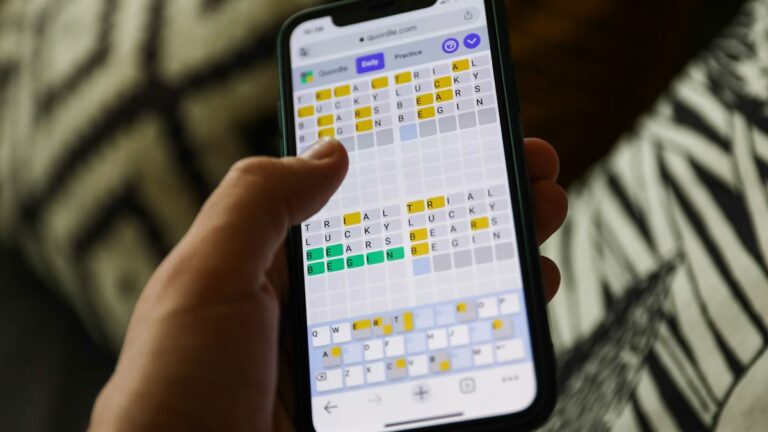:max_bytes(150000):strip_icc():format(jpeg)/Sneaky-Reasons-You-Get-Headaches-That-Have-Nothing-to-Do-With-Dehydration-0f3b2eb4cf844e88a6db718917ae7377.jpg)
Feel a headache coming on? It’s easy to assume that dehydration might be the culprit. But if you’ve tried drinking more water and your head is still pounding, maybe there’s something else going on. Headaches can occur for a myriad of other reasons.
If sipping enough water isn’t the cause of it, then what is? We turned to the most recent research and also spoke with Laura Purdy, MD, a family medicine physician and the medical director at Swell Medical, and Caroline Thomason, RD, CDCES, a dietitian based in Washington, D.C., to learn the sneaky reasons you might be getting headaches unrelated to your water intake, and the natural solutions to relieve symptoms that aren’t just popping a couple painkillers.
5 Reasons You Have a Headache That Aren’t Dehydration
1. You’re Staring at Screens
“Brightness and lights can absolutely be the culprit,” says Purdy. “This includes everything from bright LED and fluorescent lighting, glares from the TV, car headlights, and screen brightness and blue light from screens such as your phone, computer and iPads.” Staring at your screen can also cause eye strain, another headache trigger, she adds.
Try reducing your screen time. And consider investing in a pair of blue-light-blocking glasses, which can be useful if you interact with your screen at night, suggests Thomason.
2. You’re Stressed
Yes, your stress levels can play a role in the frequency and severity of your headaches. “Stress makes your muscles tight and contributes to headaches,” says Purdy. “If you are consistently waking up with a headache it’s a good indicator of poor sleep quality. Loud noise and lots of noise for a long time can absolutely lead to headaches.”
Stress can also cause you to scrunch your shoulders, cause muscle tension in your head and shoulders, and even make you grind your teeth, all of which can contribute to headaches, explains Thomason.
3. Your Body is Strained
Your posture can play a significant role in causing tension-type headaches. Research reveals that poor posture, including excessive neck bending to look at a screen, can cause headaches due to the strain on your body.
“Muscle tightness from these positions can be the culprit,” says Purdy. “These actions and movements on your body can put a strain on your upper back, shoulders, neck and head and can lead to headaches.”
4. You Need More Fuel
In addition to not drinking enough, too few calories or carbs can also make your head hurt, especially if you’re prone to headaches, says Thomason. “Eating enough food in addition to choosing balanced options keeps blood sugar level stable and can prevent headaches or even improve them,” she says. “Sometimes all you need is a snack! Nutrition triggers like alcohol, caffeine and sodium are all potential headache starters, too.”
5. You’re Taking Medications
While pain relievers can provide relief for most people, they might make symptoms worse in some cases. “Some medications have side effects that include headaches, such as certain pain relievers, antihistamines and blood pressure medications,” says Thomason. “Be sure to check with your doctor if you think this is the case for you.”
Other Tips for Relieving Headaches
If you’re dealing with a headache that is unrelated to dehydration, Thomason recommends asking yourself the following questions to narrow down the culprit: Have I eaten recently? Have I had too much caffeine today? Do I feel stressed? When was the last time I stretched? Have I been staring at a screen all day? Did I get a quality night’s sleep?
Then, try these expert-approved strategies:
- Dim the lights and rest: “Turn off any bright lights and avoid any loud sounds and screens,” says Purdy. “It’s best to relax in a dark quiet room. Likewise taking a nap can help if your body needs more sleep.” Maintaining consistent sleep patterns and practicing good sleep hygiene may also help.
- Take note of your nutrition: “Studying your relationship with food and headaches could help you reduce their frequency,” says Thomason. “If you haven’t eaten regular meals, making a snack could help.” And if you suspect a dietary trigger, keeping a food log is a useful tool for identifying patterns that may contribute to headaches.
- Apply a compress: Hot or cold compress are great ways to help relax muscles, reduce inflammation and find relief. A cold compress is good for the forehead, while a warm compress may soothe your neck and shoulders. Even a warm bath can relax the head, neck and shoulders and relieve symptoms.
- Practice relaxation techniques: Deep breathing, meditation or yoga can help reduce stress and tension. Regular low-intensity exercise, such as going for a walk, can also help reduce the frequency and severity of your headaches.
- Pain relievers: “There’s no shame in taking medication to get back to feeling your best,” says Thomason. “Medications like ibuprofen, acetaminophen or aspirin can help relieve headache pain.”
The Bottom Line
Whether your headache is or isn’t related to dehydration, it’s still important to drink up. “Make sure you are drinking plenty of water and getting plenty of nutrient-rich food throughout the day to keep your body fueled and blood sugar stable,” says Purdy. “I always recommend getting some movement, meditating and getting outside when you can. A little bit of exercise and movement can work wonders when you are able,” she says.





















+ There are no comments
Add yours